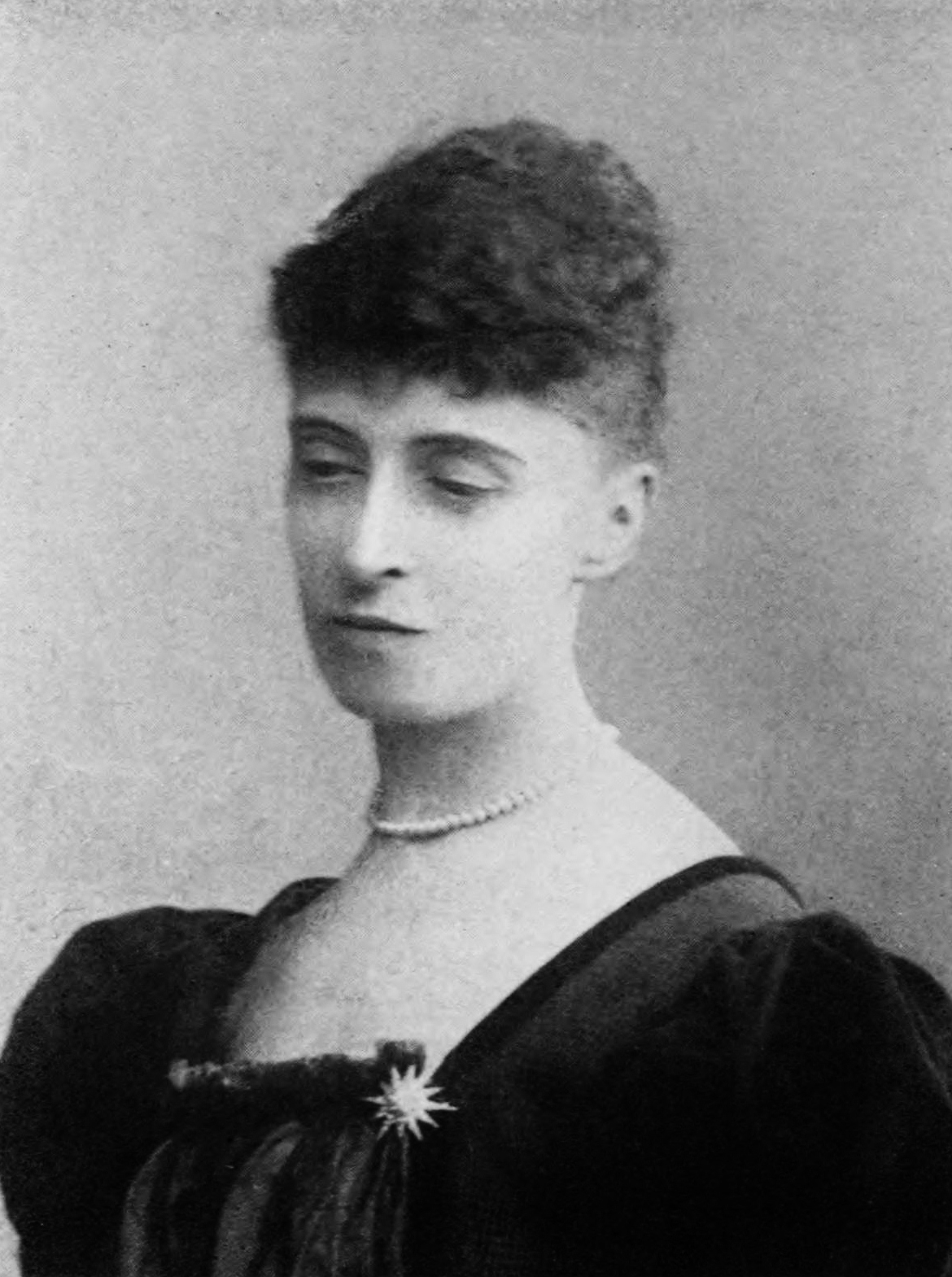“Compassion in the highest degree is the divinest form of religion.”
"Introductory Note" to The Poetry of Pathos & Delight: From the Works of Coventry Patmore; Passages Selected by Alice Meynell (London: William Heinemann, 1906), p. xi.
Alice Christiana Gertrude Meynell, geborene Thompson , war eine englische Dichterin, Schriftstellerin und Literaturkritikerin.
Alice Meynell wuchs teilweise in Frankreich und Italien auf und wurde von ihrem Vater unterrichtet. Ihr erster Gedichtband Preludes erschien 1875, illustriert von ihrer Schwester Elizabeth Thompson, fand damals wenig Aufmerksamkeit, wurde aber von John Ruskin gelobt. Weitere Gedichtbände, die mehr Aufmerksamkeit fanden, erschienen 1893 und 1901. Alice Meynell konvertierte mit ihrer Familie zum katholischen Glauben, als sie 21 Jahre alt war, und heiratete 1876 den katholischen Zeitungsherausgeber Wilfrid Meynell . Aus der Ehe gingen acht Kinder hervor, darunter die Schriftstellerin Viola Meynell. Mit Meynell gab sie die katholische Zeitschrift The Merry England heraus.
Alice Meynell schrieb regelmäßig für Zeitschriften wie The Spectator, The Saturday Review, die Pall Mall Gazette, den National Observer und Kunstzeitschriften. Neben Gedichtbänden veröffentlichte sie Essays, eine Biographie von John Ruskin und über die Maler John Singer Sargent und William Holman Hunt. Das Ehepaar unterstützte den Dichter Francis Thompson, dessen Gedichte sie herausgab. Sie gab auch Gedichtbände von Thomas Gordon Hake und des mit ihr befreundeten Coventry Patmore heraus. 1897 erschien ihre Lyrik-Anthologie Flower of the mind.
Alice Meynell war auch politisch engagiert .
Wikipedia

“Compassion in the highest degree is the divinest form of religion.”
"Introductory Note" to The Poetry of Pathos & Delight: From the Works of Coventry Patmore; Passages Selected by Alice Meynell (London: William Heinemann, 1906), p. xi.
“I came from nothing; but from where
Come these undying thoughts I bear?”
Opening lines of Song of Derivations" https://www.poemhunter.com/poem/a-song-of-derivations/"A. In Poems (London: John Lane, 1896) this poem is titled "The Modern Poet: A Song of Derivations". In later editions of Poems, it is titled "A Poet's Fancies VIII: A Song of Derivations".
"The Colour of Life" in The Colour of Life and Other Essays on Things Seen and Heard (London: John Lane, 1896), p. 4.
Opening stanza of "The Shepherdess" https://www.poemhunter.com/poem/the-shepherdess/ in Later Poems (London: John Lane, 1902).
Their mother does not put "Let's pretend" into the child's mouth; she finds it there. Without it there is no play. But the pretending is always drama and never deception or self-deception.</p>
"V. Fairies", pp. 32–33
Childhood (1913)
"Eyes", pp. 98–99
The Colour of Life and Other Essays (1896)
"Cloud", pp. 16–17
The Colour of Life and Other Essays (1896)
“[W]hat is now and then attempted is perhaps "for art's sake."”
He that saveth his art shall lose it.
Meynell alludes to the saying of Jesus: "He that saveth his life shall lose it" (Mark 8:35).
Quelle: Mary, the Mother of Jesus: An Essay (1912), Ch. X. "In Churches", p. 134
Quelle: Mary, the Mother of Jesus: An Essay (1912), Ch. IV. "The Mother", p. 40
Quelle: Mary, the Mother of Jesus: An Essay (1912), Ch. II. "Mary in the Scriptures", pp. 18, 21
Quelle: Preludes (1875), "To a Daisy", p. 70